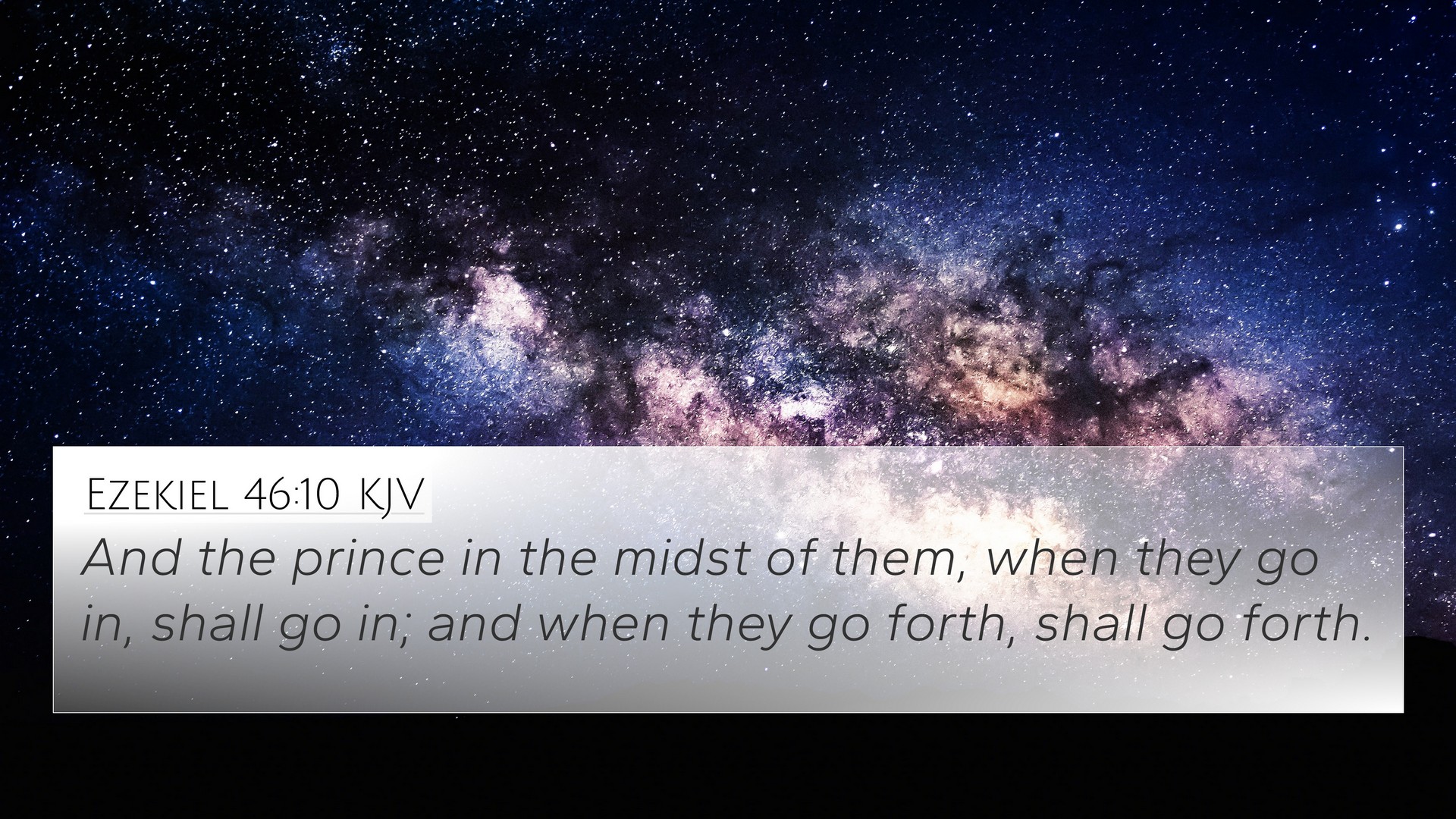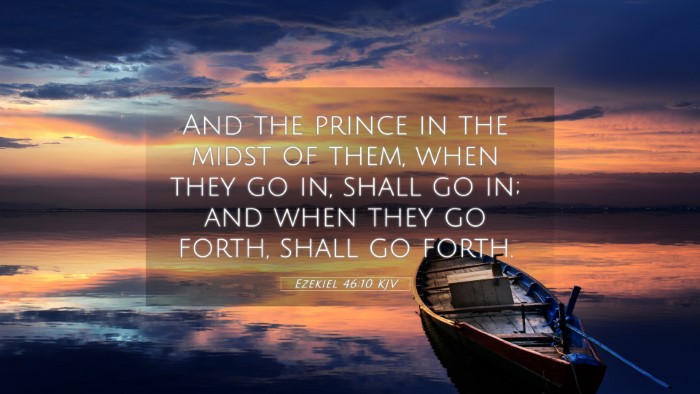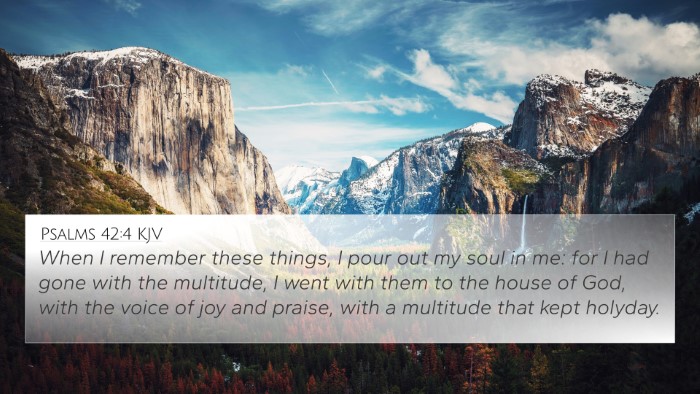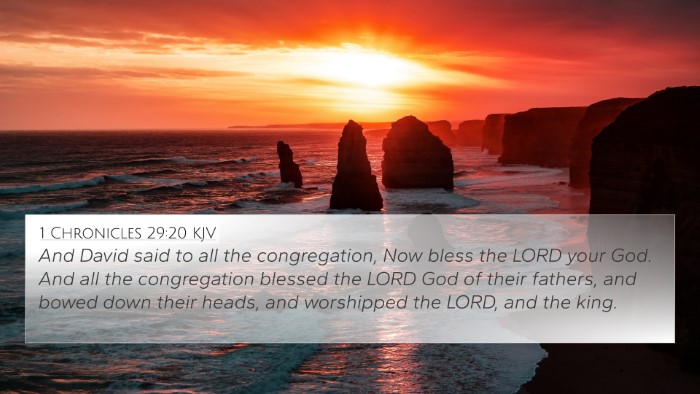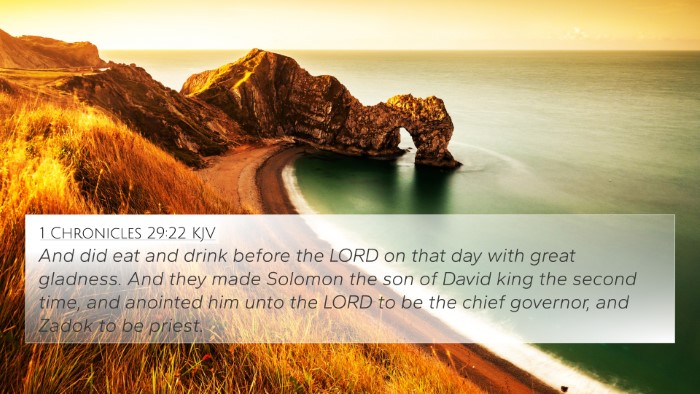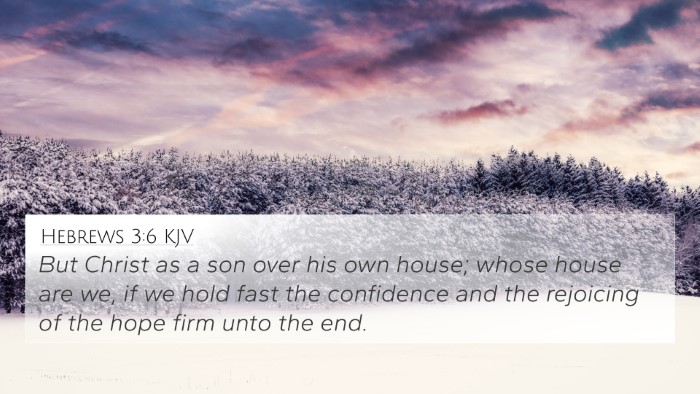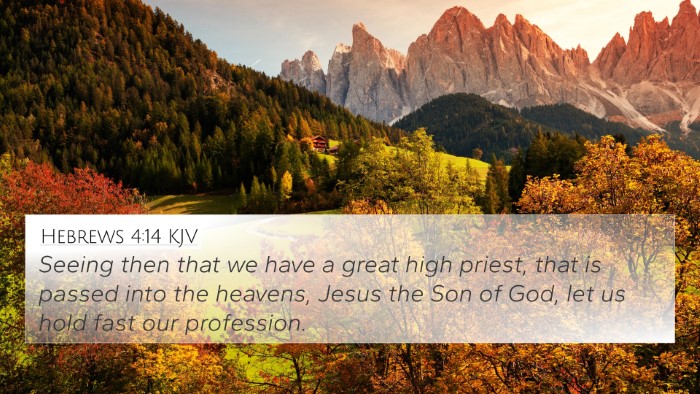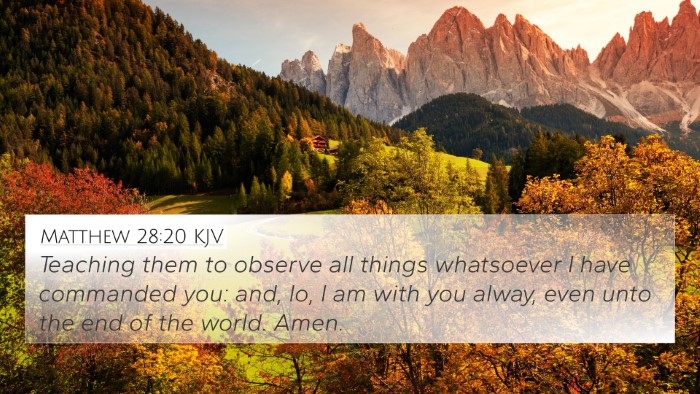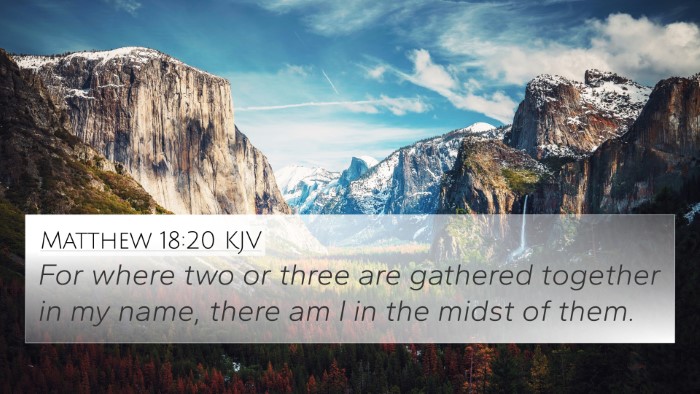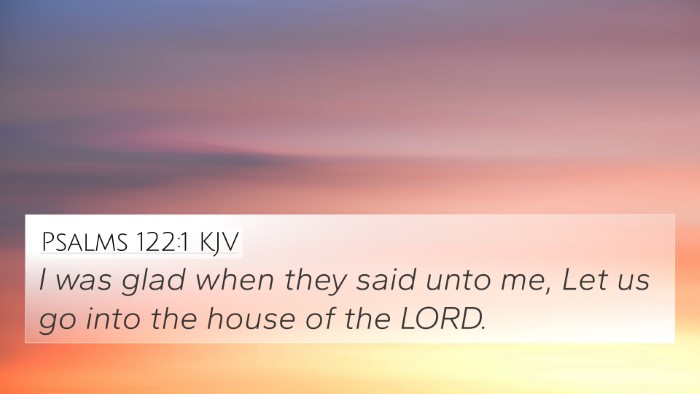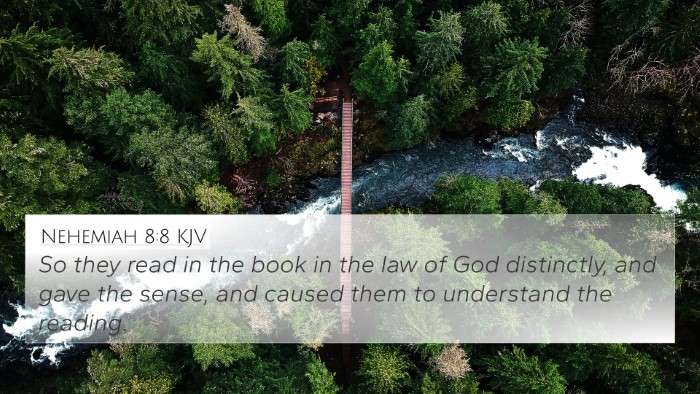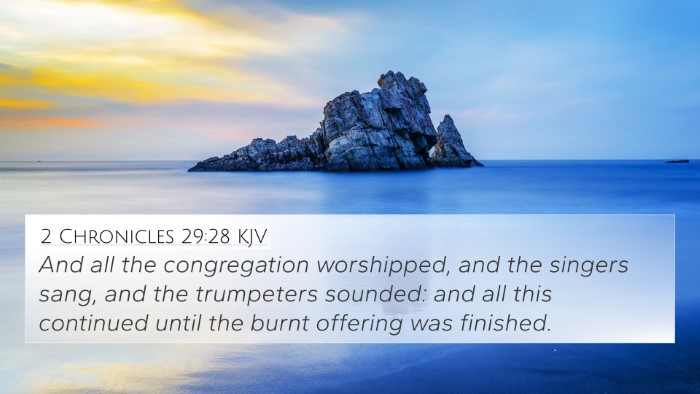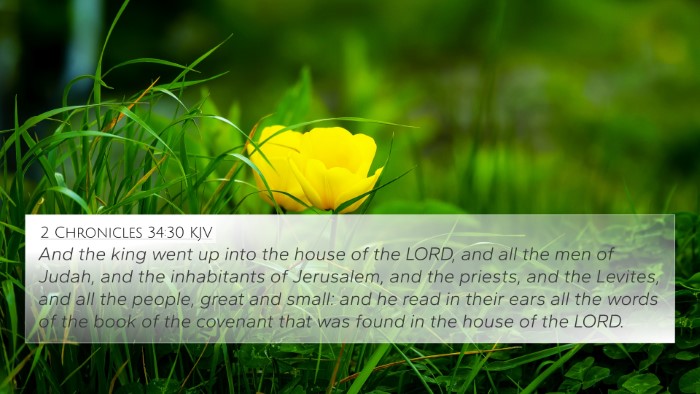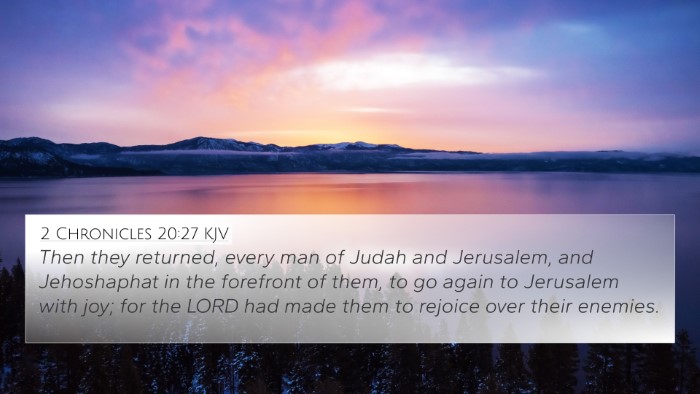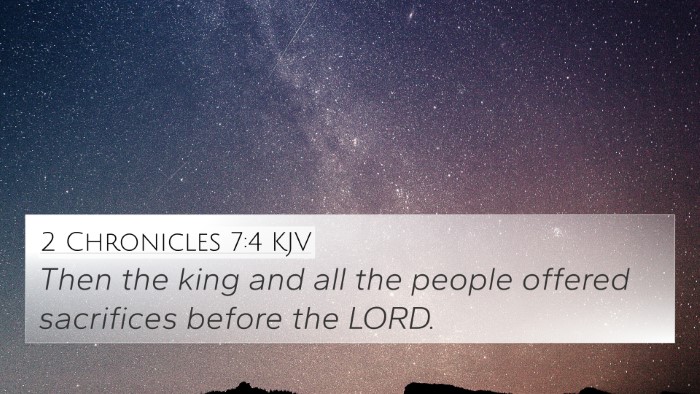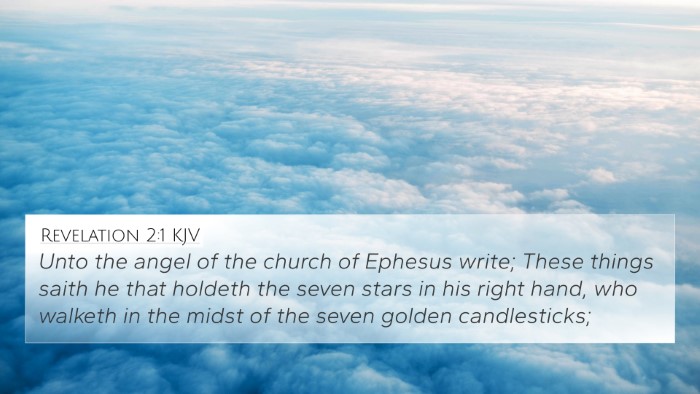Understanding Ezekiel 46:10
Ezekiel 46:10 states:
"And when the people of the land shall come before the LORD in the solemn feasts, he that entereth in by the way of the north gate to worship shall go out by the way of the south gate; and he that entereth in by the way of the south gate shall go forth by the way of the north gate: he shall not return by the gate whereby he came in, but shall go forth over against it."
Verse Meaning and Interpretation
This verse is part of Ezekiel’s vision of the temple and its worship practices. It indicates the orderly manner in which worship is to be conducted in the temple, reflecting a system of approaches to God that emphasizes reverence and distinctiveness.
- Worship Order: The direction of entry and exit signifies a formal approach to worship and the importance of following God’s prescribed orders during sacred observances.
- Solemn Feasts: The reference to the solemn feasts emphasizes that these gatherings are meant for communal worship and celebration before the Lord.
- Symbolism of Gates: The north and south gates may symbolize a balance of approach to God, reinforcing that regardless of the entry point, all worshippers leave through a pathway that honors God.
Insights from Public Domain Commentaries
Matthew Henry's Commentary
Matthew Henry notes that the prescribed method of entering and exiting through specific gates should be understood as a divine regulation for how the people align themselves in worship. Each worshipper follows a distinct path that conveys seriousness and adherence to God’s commandments.
Albert Barnes' Commentary
Albert Barnes emphasizes the unity and community aspect of worship in this verse. The paths taken by the worshippers foster a sense of collective direction towards God, indicating that worship is not an individualistic endeavor but a combined act of reverence. The gates symbolize the journey of believers toward a common purpose—honoring God.
Adam Clarke's Commentary
Adam Clarke provides insight into the ritualistic significance of these actions, suggesting that they embody an important theological principle: worship requires preparation and adherence to God’s ways. He emphasizes the need for believers to understand the importance of following God’s directives during worship to maintain the sacredness of the practice.
Bible Cross References
This verse interconnects with several other scriptures that emphasize themes of worship and divine order:
- Leviticus 16:2: God gives instructions on how to approach Him during atonement.
- Psalm 24:3-4: Speaks to the purity required for those who wish to stand in God’s presence.
- John 4:24: Jesus highlights that true worshippers will worship the Father in spirit and truth.
- Revelation 21:12: The gates of the New Jerusalem signify divine order and access to God.
- Matthew 5:23-24: Jesus teaches about approaching God with reconciliation in mind, resonating with the orderly approach to worship.
- Hebrews 10:22: Encourages believers to draw near to God with a sincere heart.
- 1 Corinthians 14:40: Paul counsels that all things pertaining to worship should be done decently and in order.
Connections and Thematic Analysis
The themes in Ezekiel 46:10 explore how worship requires structure and commitment. Its connections with other scriptures provide a broader understanding of how God desires His people to approach Him:
- Connecting Old and New Testament: The continuity from the Old Testament’s temple worship to the New Testament's spiritual worship highlights how God values faithful worship across both covenants.
- Comparative Analysis: The prescribed paths for worship reflect similar themes of ritual purity and structured worship found in Leviticus and Hebrews.
- Thematic Connection: The emphasis on orderly worship links with teachings of Jesus on the purity of worship and communal worship in the epistles.
Conclusion
Ezekiel 46:10 encapsulates core principles of worship: reverence, structure, and community engagement. The verse invites believers to reflect on how they approach worship in today’s context, emphasizing God’s desire for order and dedication in their spiritual lives. Through cross-referencing biblical texts, the connections between this verse and others deepen our understanding of worship’s significance. This analysis serves as a foundation for scholars, preachers, and seekers alike to explore the meaning behind scripture, utilizing tools for Bible cross-referencing to enrich their studies.
Further Study and Reflection
For those interested in expanding their understanding of the worship practices noted in Ezekiel 46:10, consider these practical steps:
- Utilize a Bible concordance: This can aid in finding related verses and themes.
- Engage in cross-referencing Bible study: Compare similar themes across the Bible to form a comprehensive understanding.
- Explore related commentary literature: Gain different perspectives and interpretations to deepen insights.
- Participate in group study: Discussing with others can unveil fresh interpretations and understandings.
